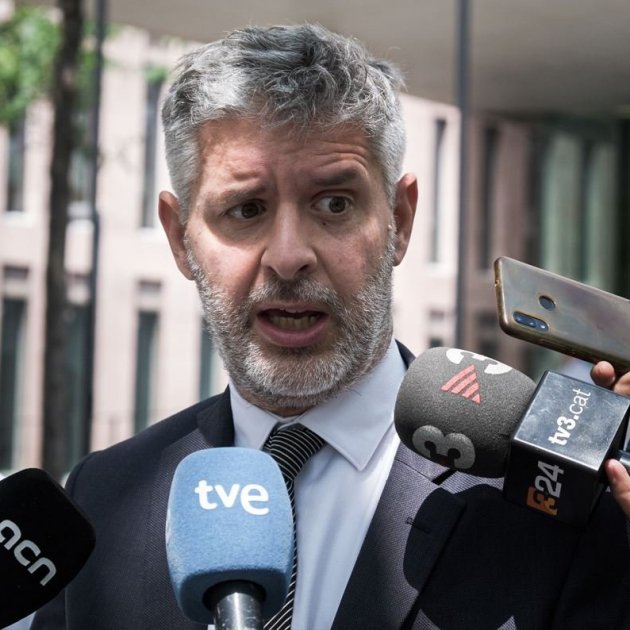The lawyer of Oriol Junqueras, Ruben Wagensberg and other Catalan Republican Left (ERC) politicians convicted over the 2017 Catalan referendum, Andreu Van den Eynde, has reacted to the decision of the Spanish Supreme Court to investigate Carles Puigdemont and ERC deputy Ruben Wagensberg for "street terrorism" in the case of the Democratic Tsunami protest platform. Van den Eynde stated that he is not surprised by the decision of the Supreme Court: "The feeling was that anything could happen, it is not so surprising either", he commented. In an interview this Friday on radio station RAC1, he spoke in particular of his client Ruben Wagensberg, who announced on January 31st that he had shifted his residence to Switzerland to protect himself from the persecution he was enduring from Spanish justice over the Tsunami case. Regarding this fact, Van den Eynde defended that the Republican MP was clear that, to do his work, "he had to take it to another jurisdiction". Thus, when asked what the parliamentary deputy had been doing since he left is "working so that everyone knows what's happening".
Regarding the possibility that the Supreme Court will summons Wagensberg to testify and that he might accept, the lawyer acknowledged that there would be a possibility of being arrested. "Today, to be pro-independence is to risk being arrested." Van den Eynde denounced that currently "being pro-independence is a crime", and therefore it is a risk that the deputy could face if he were come to the court. However, he stated that "My custom is not to supplant the responsibility that people have over their own lives, I don't know what Ruben wants to do".
Blow up the amnesty law
Lawyer Andreu Van den Eynde stated that what the Supreme Court is doing by agreeing to investigate Puigdemont and Wagensberg for terrorism "is politics". In this respect, he stated that his job is to try to "denounce it and make it understood internationally". However, he regretted that there is a structural bias in the judicial system that "has understood that it can usurp the legislative power and that it can create law, instead of applying it", and in this regard, he warned that "they are destroying the rule of law". Van den Eynde affirmed that the decision of the Supreme Court responds to an attempt to "blow up" the amnesty law "because they don't like it". According to the lawyer, those opposed to the amnesty are building a fanciful narrative to say that amnesties "should not exist, at least for these reasons. They are constructing the terrorism".
Criminal case against Puigdemont and Wagensberg for terrorism
The criminal chamber of the Supreme Court has unanimously agreed to declare that it has jurisdiction and to open criminal proceedings against MEP Carles Puigdemont and Catalan MP Ruben Wagensberg, for a crime of terrorism in the Democratic Tsunami case. The National Audience judge Manuel García-Castellón had sent an exposition of the case for the Supreme Court to take over the case, since both Puigdemont and Wagensberg are partially protected by parliamentary immunity and thus need to be tried in the high court. This, despite the final decision of a divided Supreme Court prosecutor's office to rule against the acceptance of the case. The Spanish high court has appointed judge Susana Polo to act as reporting judge and rejects the competence to investigate the case against the rest of those under investigation who, unlike Puigdemont and Wagensberg, who do not hold political office.
The Supreme Court judges consider it "necessary and pertinent" that Puigdemont and Wagensberg "be called to the proceedings to be heard as persons under investigation with all the rights and guarantees provided for in the legal system", a step that the investigating judge García-Castellón is unable to take.
